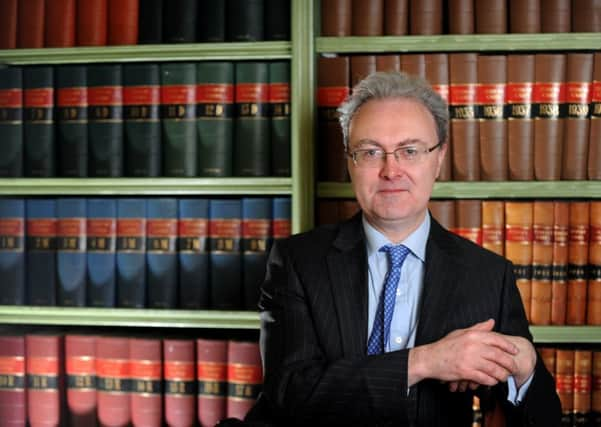New legal year time to reflect on law’s purpose


It is a day when all of us involved in the administration of justice – whether as judges, advocates, solicitors or court staff – can take a moment to dedicate ourselves anew to the service of the people of Scotland. The ceremonial reminds us that we stand in a legal tradition, which has served the country well. And that in turn reminds us of our responsibility to hand on in good heart to future generations the institutions which are in our care today.
Such reflections are particularly appropriate this year – for tomorrow will also see key provisions of the Courts Reform (Scotland) Act 2014 and ancillary procedural provisions come into force.
Advertisement
Hide AdAdvertisement
Hide AdCases which might formerly have been raised in the Court of Session will now require to be raised in the sheriff court. There will be a national personal injury court in Edinburgh sheriff court. Appeals from decisions of sheriffs in civil cases and summary criminal proceedings will now be heard in the Sheriff Appeal Court. Judicial review proceedings will require permission and be subject to a statutory time bar. A new type of judge – the summary sheriff – will in due course deal with a wide range of cases in the sheriff court.
These changes may seem dry and technical, but they will have a marked impact on the legal landscape of Scotland. Significant though they are, they are only part of a much wider campaign of reform of the justice system - reforms which are intended to enable our court system to serve the ends of justice more effectively.
Some of the changes have been controversial. But we have a responsibility to make them work, not only because that is in the interests of individual litigants and accused persons, but because the health of society as a whole depends on a sound and well-functioning justice system. We are proud of the statutory time limits which govern our criminal justice system. But the interests of the civil and commercial litigant should not be neglected. It is a good thing if disputes which cannot otherwise be settled are decided according to law by a public court which applies efficient procedures to reach a result within a reasonable time at a proportionate cost.
The interest of the Faculty of Advocates in justice reform was reflected last week in a conference on the new court structures. The Minister for Community Safety and Legal Affairs, Paul Wheelhouse MSP, the Lord Justice-Clerk, Lord Carloway, and the Deputy President of the new Sheriff Appeal Court, Sheriff Principal Craig Scott, all made time to speak in Parliament House about court reform. Experienced practitioners added their own contributions on various aspects of the reforms. Such was the interest in the event that we had to change the venue.
As we adapt to the new regime, there will, no doubt, be teething problems – and it may be that features of the system will require modification in light of experience. We should be open to that – and open, too, to further changes, should those be justified. Too often, those of us who work within the justice system have taken the structures and procedures within which we work as a given, when they are, in fact, man-made institutions created to serve a purpose, which is the just and efficient resolution of disputes in accordance with the law, and which may – and should – be changed if they do not serve that purpose.
The ceremonial and majestic features of the law reflect the continuity of our traditions, which stretch back to 1532, when the Court of Session was established, and beyond. Those traditions contain a great deal we should hold onto – adherence to principle, a commitment to the highest professional values, an outward-looking legal culture and heritage. It will be a mark of the success of reform if, at the same time as we seek to deliver a more efficient and effective service, it is those values which continue to animate the institutions of our law.
• James Wolffe, QC, Dean of the Faculty of Advocates www.advocates.org.uk